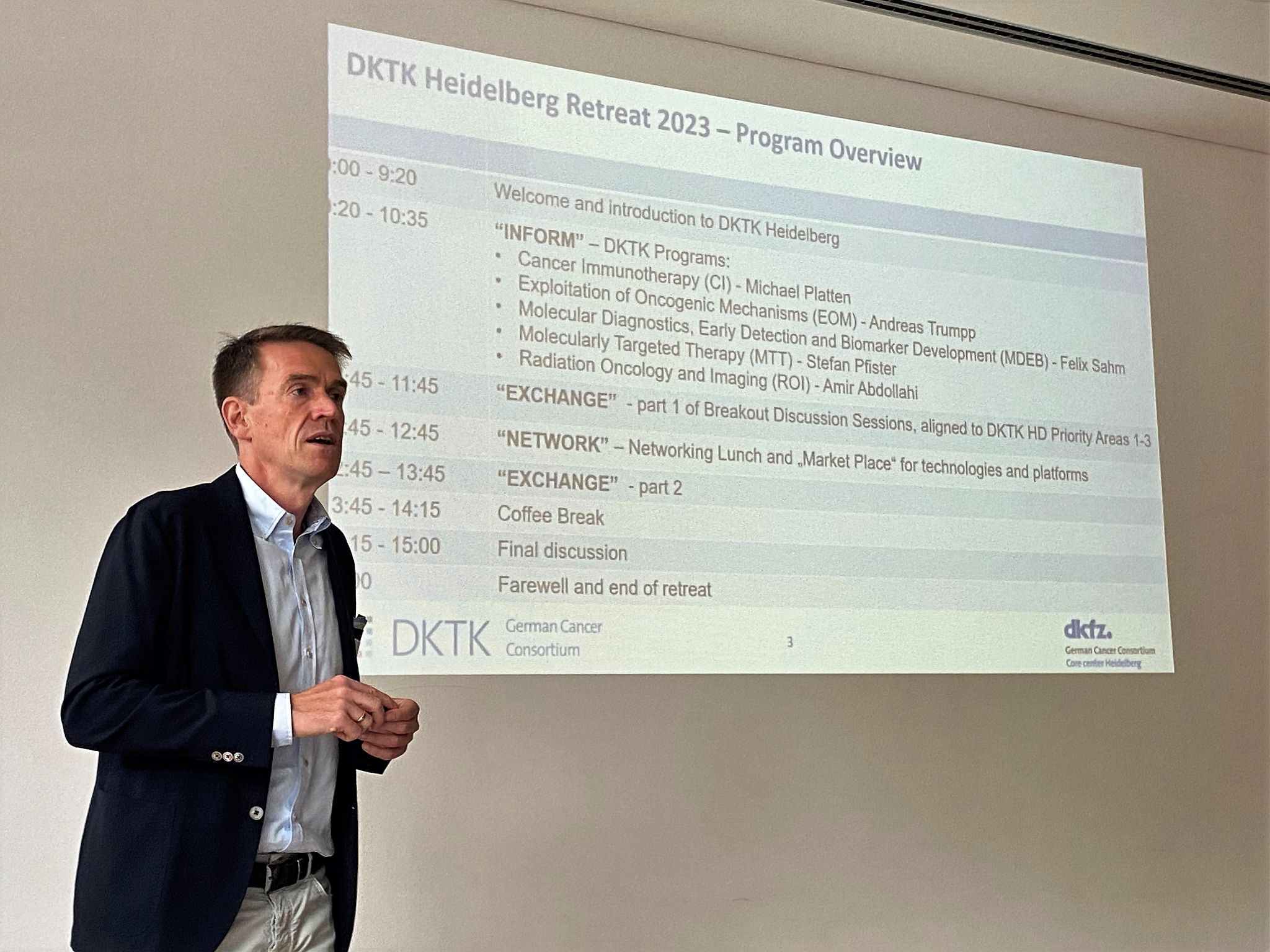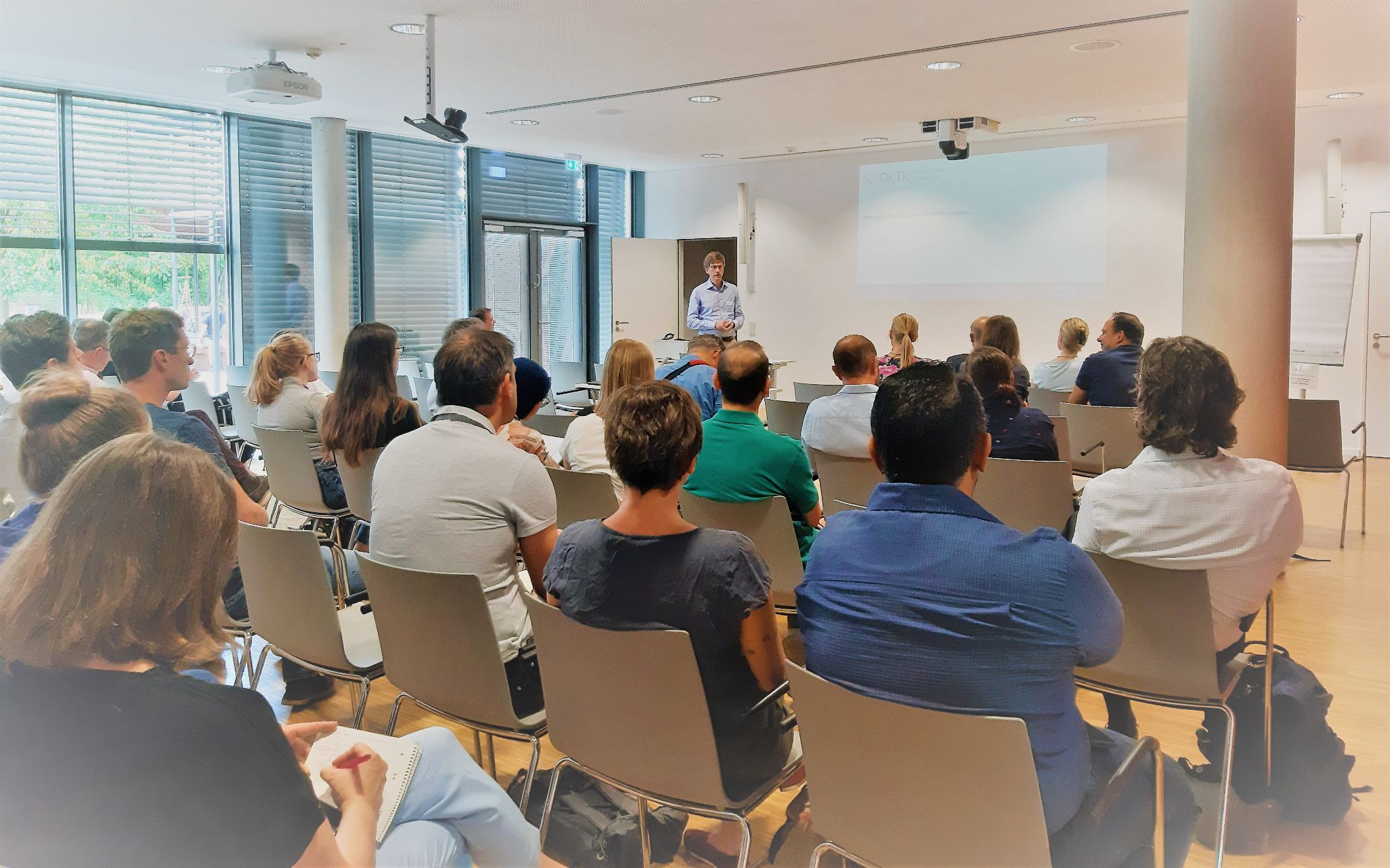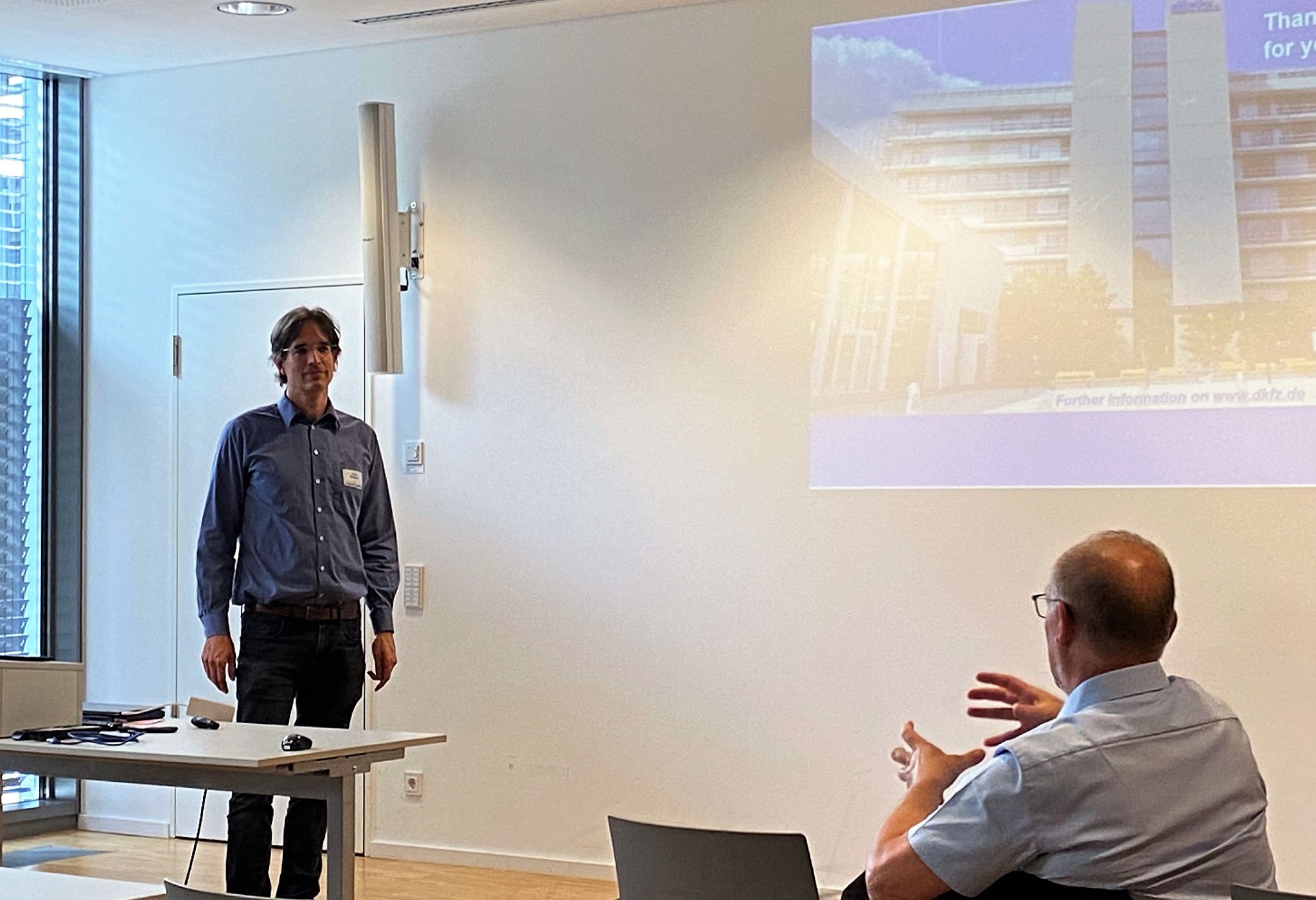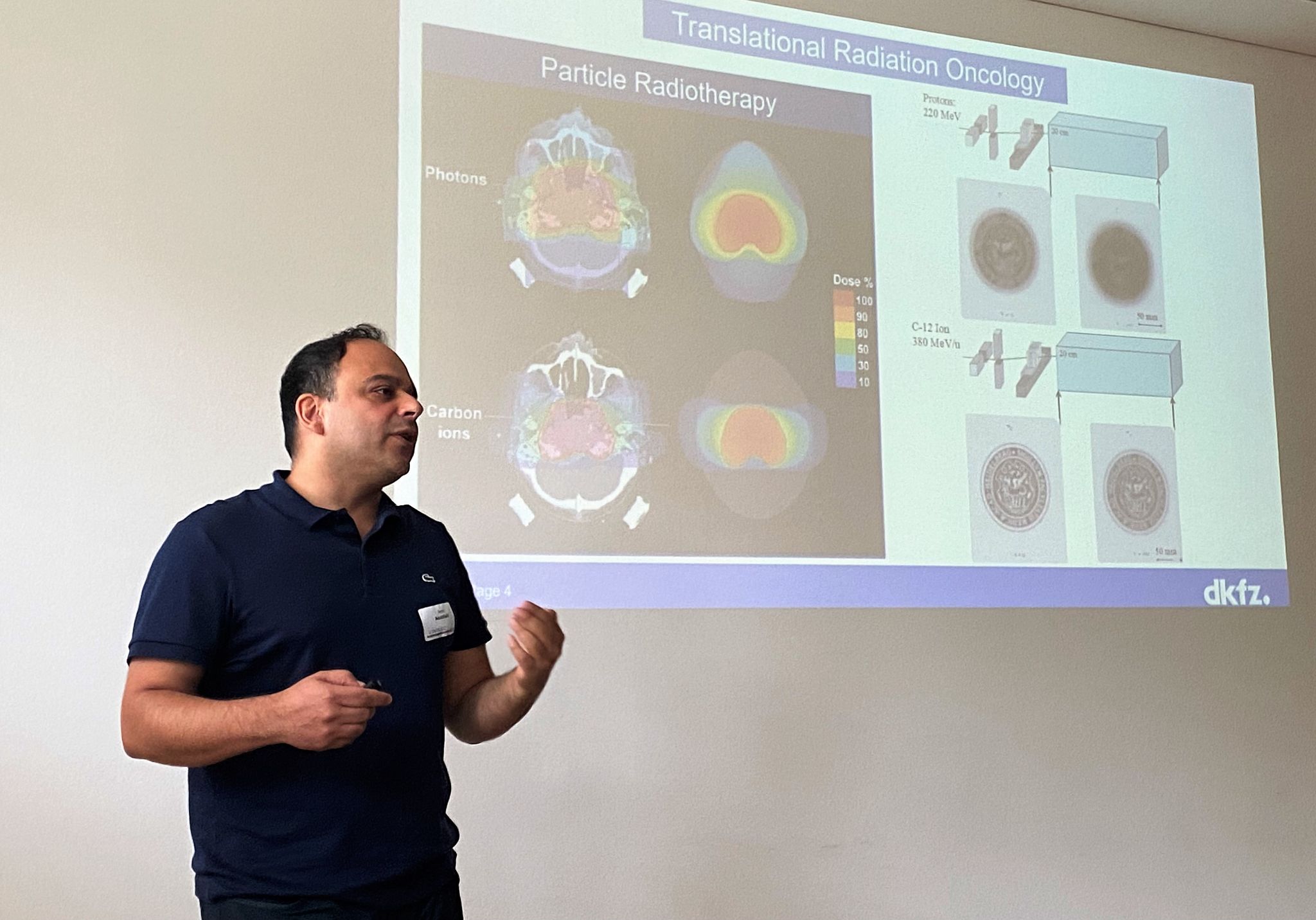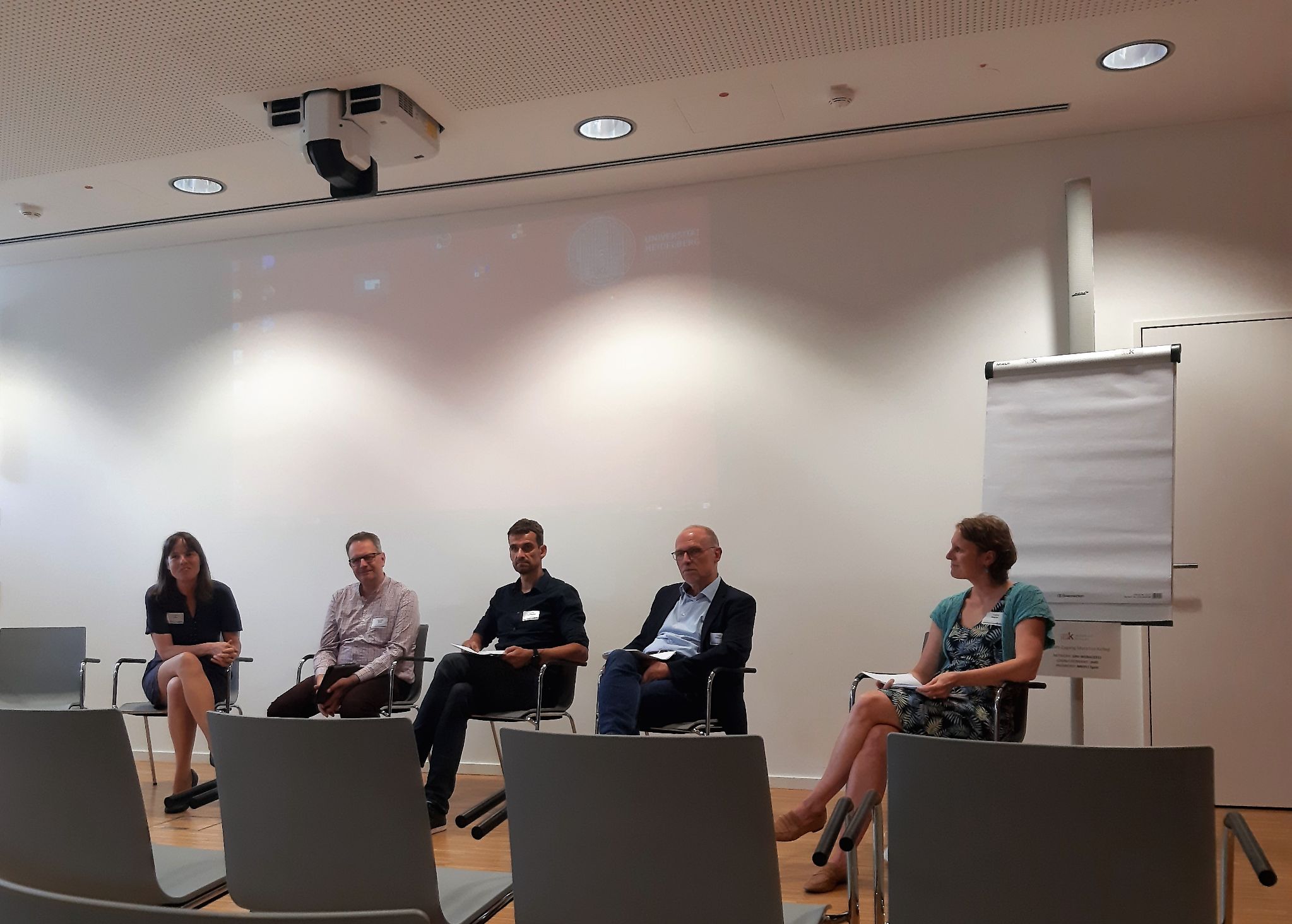26/07/2023
Print PageDKTK Retreat Heidelberg 2023
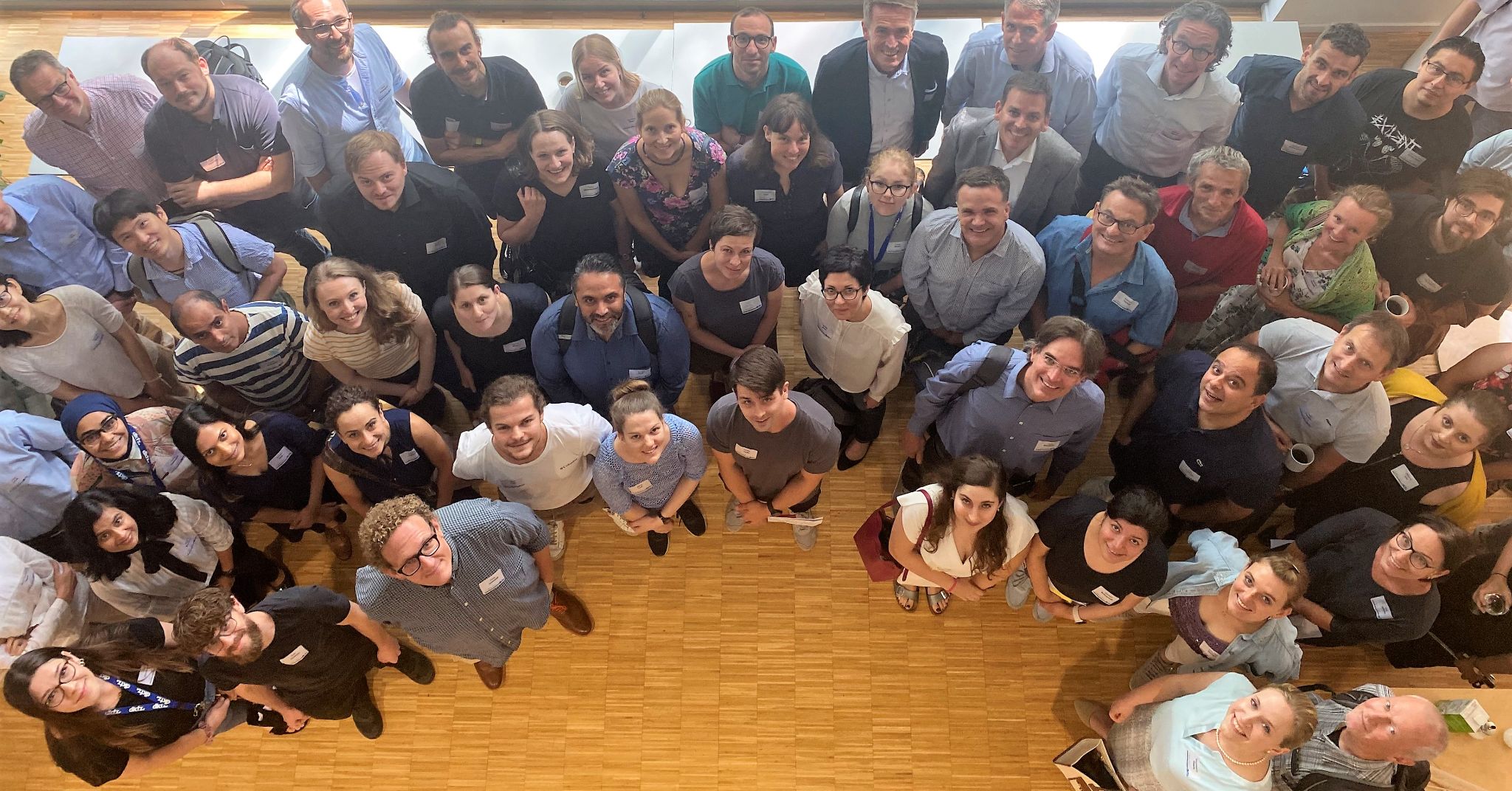
The event started with a welcome and introduction by Prof. Wolfgang Wick, spokesperson of the DKTK Translation Center Heidelberg, to catch up with all participants at the first on-site retreat after the pandemic. He particularly emphasized the synergies which are used by researchers and clinicians at the site. In addition, the DKFZ as the Core Center supports all DKTK partner sites with central infrastructures and is represented thematically in all five research programs.
INFORM
In the first part, the Heidelberg coordinators of the five DKTK research programs presented the respective focus topics. Prof. Michael Platten first spoke about the area of Cancer Immunotherapy (CI). As an example, the immunomonitoring platform, which supports and accompanies oncological studies with various analyses, makes an important contribution. The focus of the research program Exploitation of Oncogenic Mechanisms (EOM) is primarily on mechanistic basic research to identify and investigate new substances. Prof. Andreas Trumpp mentioned SATURN3 and a Joint Funding research project studying risk prediction and overcoming therapy resistance in AML as site-overarching examples. Prof. Felix Sahm then provided insights into the area of Molecular Diagnostics, Early Detection, and Biomarker Development (MDEB): projects and technologies include diagnostics using DNA methylation, liquid biopsies, nanopore sequencing, and screening methods for cancer prevention. For the Molecularly Targeted Therapy (MTT) program, Prof. Stefan Pfister reported on the INFORM program and the successful use of molecular tumor boards. The fifth research focus of the DKTK is in the area of Radiation Oncology and Imaging (ROI). Here, Prof. Amir Abdollahi spoke about Heidelberg's research in translational radiation oncology, for example, to overcome tumor resistance. In addition, he reported on preclinical research projects, which include the development of biomarkers for imaging.
NETWORK
During the networking lunch and the breaks between the presentations, the Market Place for technologies and platforms gave participants the opportunity to find out more about some of the services offered centrally by DKTK and about technologies that are made available additionally by individual DKTK research groups:
- Adaptive Nanopore Sequencing: Areeba Patel
- CCP – Clinical Communications Platform: Sandra Meyer, Barbara Uhl, Daniel Maier, Mohamed Lambarki, Mats Johansen
- Immunomonitoring: Katharina Lindner, Simone Jünger
- JIP – Joint Imaging Platform: Heinz-Peter Schlemmer, Marco Nolden, Hanna Leisz
- MIBI – Multiplex ion beam imaging: Felix Hartmann, Sven Truxa
- Next Generation Sequencing and other Core Facilities at DKFZ: Melanie Bewerunge-Hudler
EXCHANGE
During the morning and afternoon, three parallel "EXCHANGE" sessions were offered to present progress with the 3 DKTK Heidelberg priority areas:
- Priority Area 1: i) Next Generation Precision Oncology; ii) Data Science – Exploration of Large Clinical and Research Data Sets
- Priority Area 2: Innovative Molecular Diagnostic Analytics
- Priority Area 3: Innovative Precision Prevention Strategies
Speakers in these sessions presented their research projects and discussed them with the audience and the moderator tandems facilitating the sessions. The discussion results and ideas were then summarized by the moderators and discussed with all participants during the concluding session which was moderated by Dr. Christiane Opitz, deputy spokesperson of the DKTK Translation Center Heidelberg. The outcomes of the very productive discussions during the day are envisaged to support the participants in transforming the jointly collected ideas into future collaborative projects between DKTK Heidelberg scientists and their colleagues at the 7 other DKTK partner sites.
